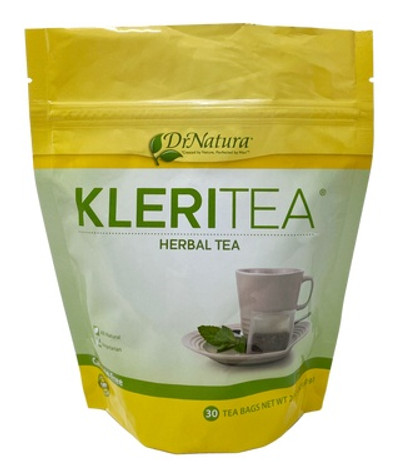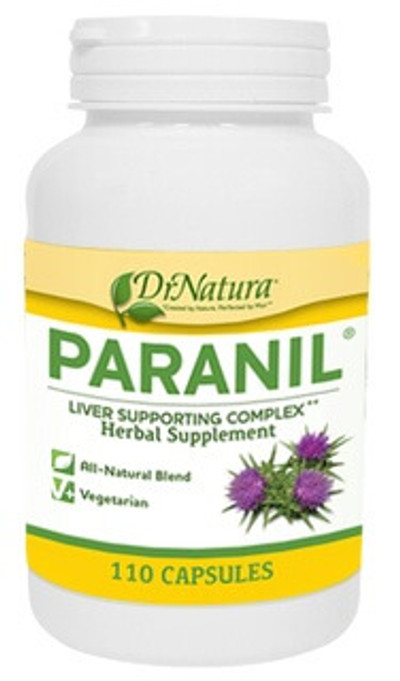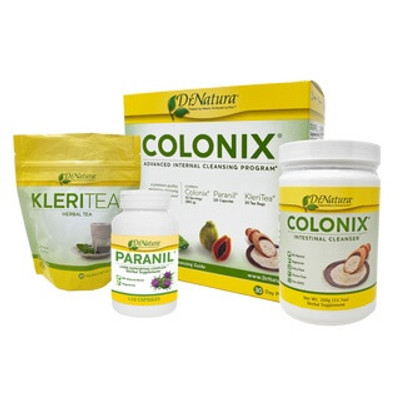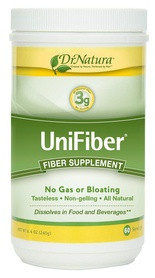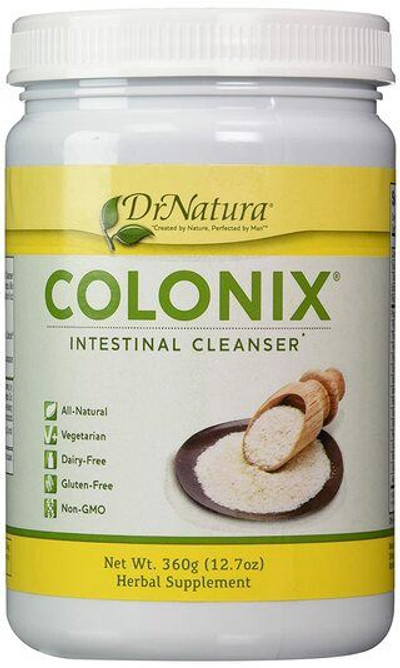

Cleansing Health Benefits
Colon health used to be a topic that people whispered about privately, or perhaps discuessed only with their doctors. Today, however, talking about the colon and its health is now common and almost expected.

Why Cleanse the Colon Naturally?
Your colon - also known as the large intestine - is a large tube-like organ that is connected to your small intestine. About six feet in length and the shape of an inverted "U," it runs up one side of your abdomen, across your midsection, and down the other side, where it connects to your rectum and anus. It's called the "large intestine" because it is two to three times the width of your small intestine, an important feature that makes it capable of handling the end process of digestion and waste removal. [1]
While most of the nutrients you get from food are absorbed in the small intestine, the large intestine is given the task of absorbing remaining fluids from feces as it moves toward evacuation. In the process, the colon absorbs sodium and various salts, discharges potassium, and is the home of between 300 and 1,000 species of microscopic bacteria, some of which produce vitamin K and biotin. [2] , [3] These bacteria come in essentially two varieties: "friendly" and "unfriendly." That is, some of them promote good health, while an overabundance of the others can lead to discomfort and disease. [4]
When the colon becomes sluggish and doesn't move waste through quickly and efficiently, a person can experience a range of uncomfortable issues such as constipation, bloating, abdominal discomfort, unusually thin or small stools, pain during evacuation, and more. [5] All too often, people turn to laxatives for help. Most of the laxatives that people use with regularity are bowel stimulants that work by irritating the walls of the intestinal tract, causing increased peristalsis — the movement of the intestinal walls — as the body attempts to expel the laxative. [6] Unfortunately, with continued use, this can result in poor intestinal muscle tone, faulty peristalsis, and even further dependence on laxatives. And not only can continued reliance on laxativeslead to the inability to move the bowels without [7] their aid, but also to the depletion of vital electrolytes such as potassium. [8]
The Many Benefits of a Colon Cleanse
Cleansing the colon naturally, however, addresses these issues from a healthier angle. In fact, fiber-based cleanses such as DrNatura's Colonix program, can exert strong health-preserving effects beyond colon health, such as supporting a healthy heart, optimizing immune function, and encouraging a healthy weight. [9] Essentially, cleansing the colon helps to get the colon back to "manufacturer's condition", alleviating symptoms of digestive upset while also promoting overall well-being.
It's Good to be Regular

In the world of natural cleansing, there is really nothing that trumps the use of fiber. According to the American Heart Association, we should aim for 25 to 30 grams of dietary fiber each day. [10] Increasing your intake of dietary fiber also has the added benefit of helping regulate bowel consistency. This, in turn, is linked to lower levels of cholesterol and reduced risk of heart disease, obesity, and overweigh. [11] But perhaps most immediately noticeable is simply how much better it feels to have regular and complete evacuations; there's a sense of lightness that many consistent fiber-users report.
Healthy Colon, Healthy Heart

You might not immediately make the connection between colon health and heart health, but the association is strong and well-known in the medical and scientific community. [12] In large part, the link is between dietary fiber and the bacteria that are naturally found in the intestines. [13] Dietary fiber actually feeds the "friendly" bacteria mentioned earlier, which in turn produce metabolic and biochemical processes that produce good health on many levels. [14] , [15] Indeed, a lack of this symbiotic relationship can result in health risks including atherosclerosis (hardening and clogging of the arteries), hypertension (raised blood pressure), heart failure, and more. [16] Accordingly, getting lots of fiber through a fiber-based colon cleanse, is a fantastic way to help protect the heart. [17]
Immune Health Protection

Most people are surprised to discover that as much as 70% of our immune health is actually related to what goes on in our guts. [18] More specifically, the billions of bacteria that live in the digestive system play a large role in immunity. When "unfriendly" bacteria outnumber the "friendly", you can actually suffer from lowered immunity. [19] Boosting levels of the friendly bacteria can therefore effectively support your immune system. [20]
How do you do this? Fiber, of course! This is one of the reasons why a good, fiber-based colon cleansing program can help support optimal immune function: just as with the heart, feeding friendly bacteria with dietary fiber also contributes to keeping your immune system in top shape. [21]
Bulk Up to Slim Down

Finally, it should come as no surprise that cleansing the colon can lead to a slimmer, lighter body. [22] After all, most people have experienced the sensations that come with constipation: feeling bloated, heavy, and uncomfortable. By contrast, a full and complete evacuation leaves a person feeling lighter and healthier.
Here, as well, the fiber component of a colon cleanse is what makes the difference, and in two ways. First, because dietary fiber bulks up and becomes sticky and gelatinous in the body as it moves through, it effectively helps sweep the colon clean, pulling other food waste and metabolic byproducts with it. [23] , [24] This helps ensure that the intestines stay clean and that nothing "hangs around" longer than it should. Additionally, this bulking up of fiber actually helps you feel full longer, which can help with common weight loss goals such as portion control. [25] As the fiber increases in size in your stomach and intestines, signals are sent to your brain to tell you that you're full and don't need to eat more. [26]
Secondly, the role that fiber plays in feeding the friendly bacteria of the body can actually help you lose cravings for unhealthy foods. [27] Research has uncovered that the bacteria in our body communicate with us in ways that make us crave the foods that feed them. [28] As a result, as we get plenty of dietary fiber, we feed the bacteria that, in turn, keep us healthy and wanting more good, nutritious food. [29] , [30] Because a fiber-based cleanse such as DrNatura's Colonix program helps supply the body with a steady supply of health-promoting fiber, users can find that one effect of the cleansing experience is the loss of unhealthy cravings. This, of course, can contribute to the shedding of some unwanted and unneeded pounds.
DrNatura Full Line of Cleansing Products
References:
-
The Colon: What it is and What it Does. (2020). American Society of Colon and Rectal Surgeons.https://fascrs.org/patients/diseases-and-conditions/a-z/the-colon-what-it-is,-what-it-does
-
Rowland I et al., Gut microbiota functions: metabolism of nutrients and other food components. (2017). European Journal of Nutrition. doi: 10.1007/s00394-017-1445-8. p.2
-
Gorbach, S. L. (1996). “Microbiology of the Intestinal Tract,” Medical Microbiology, 4th ed. University of Texas Medical Branch at Galveston.https://www.ncbi.nlm.nih.gov/books/NBK7670/
-
Weatherspoon, D. (2017). Good vs. Bad Germs. Healthline.https://www.healthline.com/health/cold-flu/good-bad-germs
-
Balch, P. A. (2002). Constipation. Prescription for Herbal Healing. Penguin Putnam Inc., New York: NY. Pp. 243-245.
-
Laxatives: Overview. (2019). National Health Service, UK.https://www.nhs.uk/conditions/laxatives/
-
Laxative Use: What to Know. (2019). Cornell University.https://health.cornell.edu/sites/health/files/pdf-library/LaxativeUse.pdf
-
Ibid
-
Fiber. (n.d.). Harvard T. H. Chan School of Public Health.https://www.hsph.harvard.edu/nutritionsource/carbohydrates/fiber/
-
Increasing Fiber Education. (n.d.). University of California San Francisco.https://www.ucsfhealth.org/education/increasing-fiber-intake
-
Fiber. (n.d.). Harvard T. H. Chan School of Public Health.https://www.hsph.harvard.edu/nutritionsource/carbohydrates/fiber/
-
Researchers Discover Gut-Heart Connection in Coronary Artery Disease. (2015). Cleveland Clinic.https://consultqd.clevelandclinic.org/researchers-discover-gut-heart-connection-in-coronary-artery-disease/
-
Wilson Tang, W. H., Kitai, T., & Hazen, S. (2018). Gut microbiota in cardiovascular health and disease. Circulation Research, 120(7), pp. 1183-1196.
-
Tuohy, K., Conterno, L., Gasperotti, M., & Viola, R. (2012). Up-regulating the human intestinal microbiome using whole plant foods, polyphenols, and/or fiber. Journal of Agricultural and Food Chemistry, 60(36), pp. 8776-8782.
-
Fiber. (n.d.). NutritionFacts.org.https://nutritionfacts.org/topics/fiber/
-
Miriani, A. (2018). What problems can you get with not getting enough fiber? SFGate.https://healthyeating.sfgate.com/problems-can-not-getting-enough-fiber-7557.html
-
Fiber. (n.d.). Harvard T. H. Chan School of Public Health.https://www.hsph.harvard.edu/nutritionsource/carbohydrates/fiber/
-
Vighi, G., et al. (2008). Allergy and the gastrointestinal system. Clinical and Experimental Immunology, 153(Supp-1), pp. 3-6.
-
Nutrition and Immunity. (n.d.). The Nutrition Source. Harvard T. H. Chan School of Public Health.https://www.hsph.harvard.edu/nutritionsource/nutrition-and-immunity/
-
Can Gut Bacteria Improve Your Health? (2016). Harvard Men’s Health Watch.https://www.health.harvard.edu/staying-healthy/can-gut-bacteria-improve-your-health
-
Schley, P. D. & Field, C. J. (2002). The immune-enhancing effects of dietary fibres and prebiotics. British Journal of Nutrition, 87(Supp-2), pp. S221-230.
-
Howarth, N.C., Saltzman, E., & Roberts, S. B. (2001). Dietary fiber and weight regulation. Nutrition Reviews, 59(5), pp. 129-139.
-
Rethinking Fiber and Hydration Can Lead to Better Colon Health. (2013). Harvard Health Letter.https://www.health.harvard.edu/diseases-and-conditions/rethinking-fiber-and-hydration-can-lead-to-better-colon-health
-
Fiber. (n.d.). NutritionFacts.org.https://nutritionfacts.org/topics/fiber/
-
Ferrari, N. (2015). Making one change – getting more fiber – can help with weight loss. Harvard Health Blog.https://www.health.harvard.edu/blog/making-one-change-getting-fiber-can-help-weight-loss-201502177721
-
Emspak, J. (2014). Why High-Fiber Diets May Help Weight Loss. LiveScience.https://www.livescience.com/45225-why-fiber-helps-weight-loss.html
-
Anderson, S. C. (2019). The Shocking Source of Your Cravings. Psychology Today.https://www.psychologytoday.com/us/blog/mood-microbe/201905/the-shocking-source-your-cravings
-
Ibid.
-
Ibid.
-
Fiber. (n.d.). NutritionFacts.org.https://nutritionfacts.org/topics/fiber/


